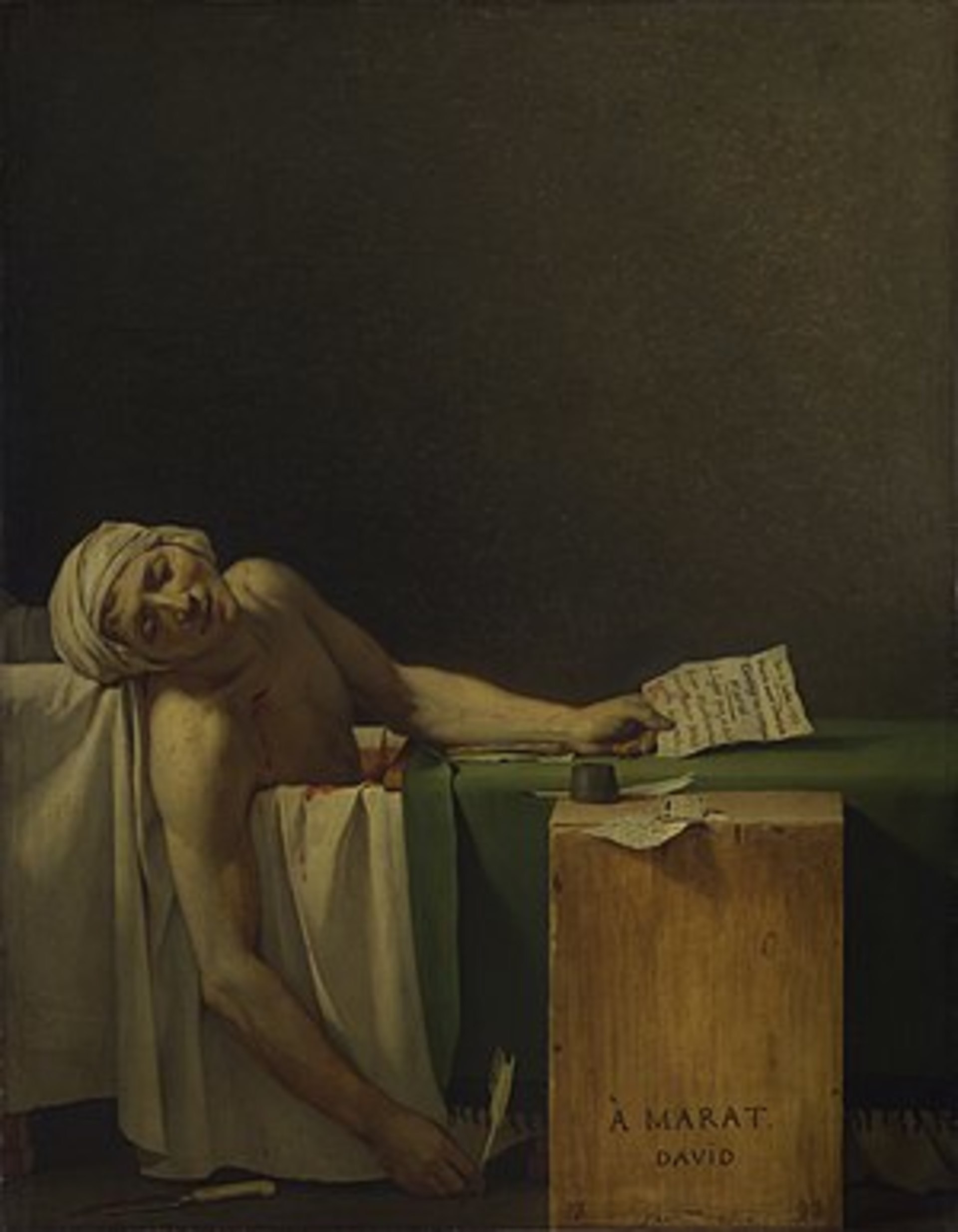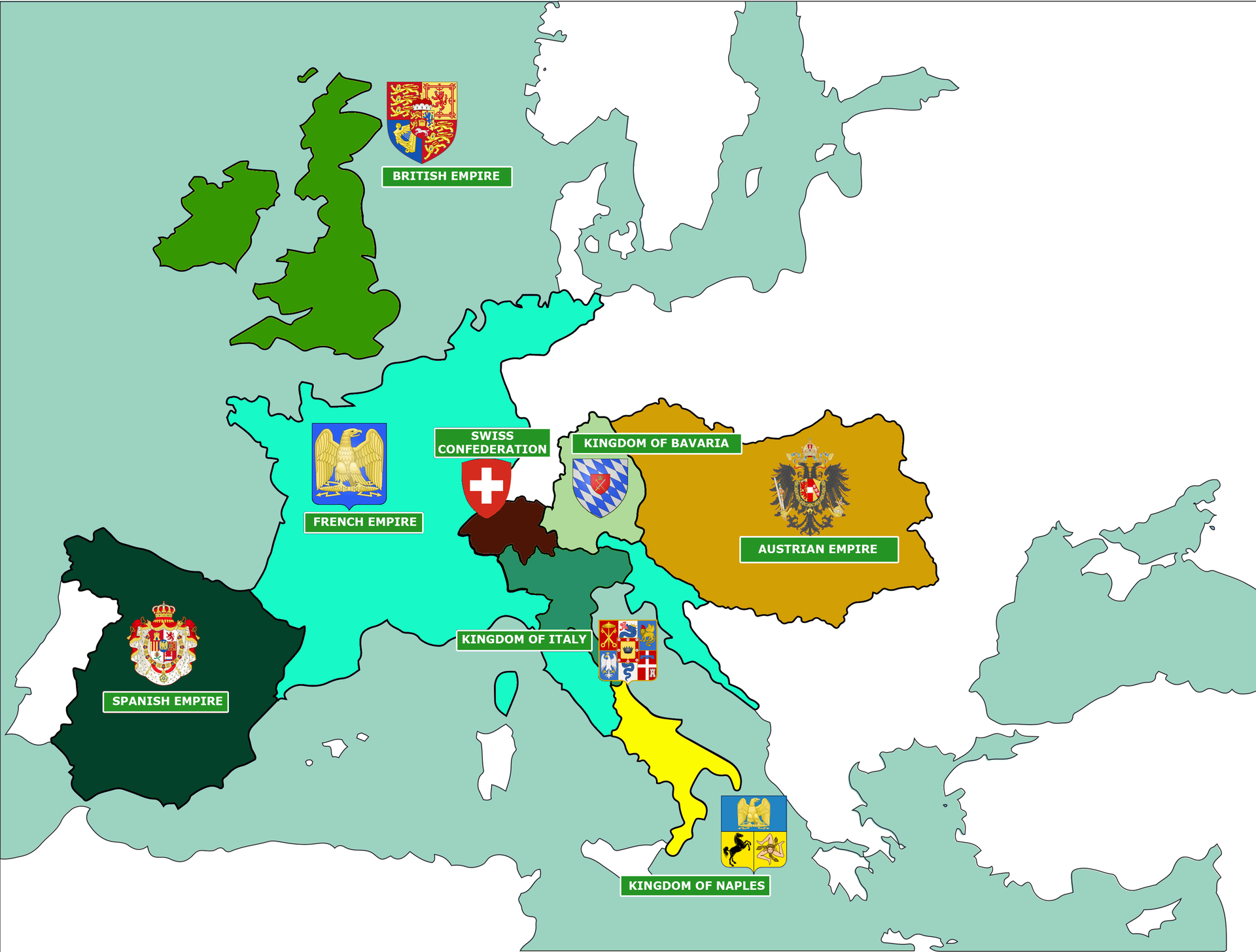European Championship 1812
The ideas of the French Revolution spread across all Europe with Napoleon's warpath at the beginning of the 19th century. The French Revolution was not just a moment of the fall of a feudal system because the entrance of the unprivileged classes on a political scene represented a turning point in the creation of the national world we know today.
The basic thoughts of the French Revolution were equal rights for all people, which in practice meant the overthrow of a centuries-old feudal order, and a different view of the legitimacy of the king's authority, which was no longer based "on the mercy of God" but "on the will of the people." , and this is what the people do through their political parties in parliament. In order for the people to be able to elect their representative at all, they would have to obtain their "civil rights", ie equality under the law with previously privileged nobility and clergy, which in almost every state made up only about 1% of the total population. With the abolition of the feudal order, society transforms from a stale to a civic one, where every citizen, or resident of the state, has basic human rights, thus creating conditions for the emergence of a new type of community - nation.
At the same time, the Revolution emphasized a new type of state - a nation-state in which there can be only one nation as a "political people", that is, one that has the right to participate in the power of that state. Although a similar system of government already existed in the UK, the Revolution imposed not only 'brotherhood' but also 'equality and freedom' as the criteria of a modern nation, which was indeed much harsher than the English example in which there was still plenty conservatism and aristocracy. At the same time, a general anti-church sentiment prevailed among the revolutionaries, since they saw in the Church a pillar that supported and maintained a stable society, and therefore many priests and religious buildings were killed during the Revolution. During their rule, the Jacobites, in imitation of the characteristics of the Christian religion, sought to "educate a new citizen" and for this purpose introduced human rights by symbolizing the plates of Moses, the cult of Reason as the supreme being, worshiping the "martyr" of the revolution (Jean-Paul killed Marath) and Satanizing enemies at home (Girondins, Royalists) and abroad.
In 1792, the European monarchs would join forces to fight against a republican France for fear of spreading the ideas of the Revolution. However, with the arrival of Napoleon in power (1799), France went on the offensive. With conquests, he spread ideas about equality for all citizens before the law, which threatened the foundations of ancient empires and kingdoms that were based on tradition, dynastic rights, and international treaties. The builder of anti-French coalitions was Britain, the Habsburgs were the most persistent opponents, while Russia and Prussia only occasionally participated in wars. On the other hand, the most reliable French allies were the individual states of the failed Holy Roman Empire.
The Napoleonic campaigns, accompanied by the enormous increase in printing in many languages, enabled the spread of nationalist ideology, the trend of constructing a nation, and the imitation of a political model of a nation-state that had never existed before. However, in most cases the people did not accept the French reforms. Especially not the pious and illiterate, such as the peoples of Spain, in the south of the Apennine Peninsula, Tyrols and Russians, who rose to defend their church and rulers with weapons from foreigners, the ungodly and the revolutionaries. Also, there was great dissatisfaction with the squeezing of taxpayers in the conquered countries for further warfare. Almost all the campaigns and land battles up to 1812 meant the triumph of France. However, at sea he was completely defeated by the UK. However, the long war in Spain (1808-1814), the opening of the front in the East, and the failed march to Russia in 1812 with disastrous consequences, led to Napoleon's downfall. He would finally be defeated by the united European forces at the Battle of Waterloo in 1815.

Sources
- Alan John Percivale TAYLOR, Habsburška monarhija: 1809-1918., Zagreb, 1990.
- Henning OTTMAN, ''Civilna religija kao imitacija i parodija religije'', Politička misao, 49/2012, br.3.
- Petar KORUNIĆ, ''Porijeklo, integracija i budućnost nacije'', Etničnost i povijest (ur.Emil Heršak), Zagreb, 1999.
- Snježana KORDIĆ, Jezik i nacionalizam, Zagreb 2010.
- Eric John HOBSBAWM, Doba revolucije: Europa 1789-1848, Zagreb, 1987.
- Adrian HASTINGS, Gradnja nacionaliteta , Rijeka, 2003.
- Grupa autora,''Revolucija u Francuskoj'': Velika ilustrirana enciklopedija, Zagreb, 2009.
- Grupa autora,''Napoleonski ratovi'':Velika ilustrirana enciklopedija, Zagreb, 2009.
- Niall FERGUSON, Civilizacija: Zapad i ostali, Zagreb, 2012.
- Esad ĆIMIĆ, Drama ateizacije. Religija, ateizam i odgoj, Sarajevo, 1971.
- Maps:
- https://commons.wikimedia.org/wiki/File:Europe_1812_map_en.png
- https://en.wikipedia.org/wiki/Bavaria
- https://en.wikipedia.org/wiki/History_of_Madeira
- http://geacron.com/home-en/?&sid=GeaCron270726
- Photography22: https://en.wikipedia.org/wiki/The_Death_of_Marat
- Background for IG photo: https://images5.alphacoders.com/712/712726.jpg
